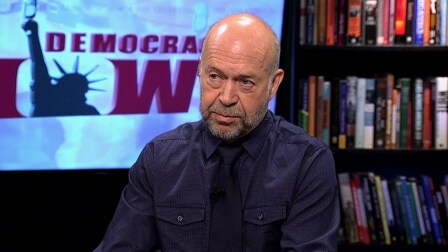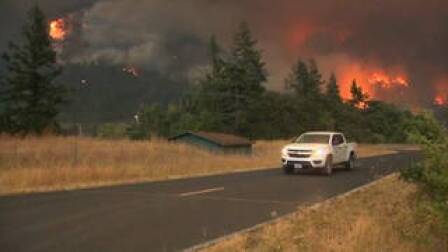Up Next
Why the Muslim Stance Against Barcelona Attack Needs More Coverage
Spanish police are continuing to investigate last week’s attack in Barcelona, where 15 people died after a van plowed into a crowded walkway along Las Ramblas — the city’s most famous avenue. On Monday police shot dead the man suspected of driving the van: a Moroccan-born, 22-year-old named Younes Abou-yaaqoub. Police believe he was part of a 12-person cell plotting to carry out a series of bomb attacks. Eight of the cell’s members are now dead, four suspected members have been detained. The events of the past week have shocked many in the Barcelona region. On Sunday, thousands of Muslims, including many from Morocco, marched against violence in Barcelona, chanting, "Islam is peace" and "not in my name." We speak to Tariq Ramadan, Professor of Contemporary Islamic Studies at Oxford University. Ramadan was named by Time Magazine as one of the most important innovators of the twenty-first century. In 2004, Tariq Ramadan accepted a job at the University of Notre Dame in Indiana, and Time magazine listed him among the top 100 thinkers in the world. But nine days before Ramadan was set to start teaching here in the United States, the Bush administration revoked his visa, invoking a provision of the PATRIOT Act that allows the government to deny entry to non-citizens who "endorse or espouse terrorism."











